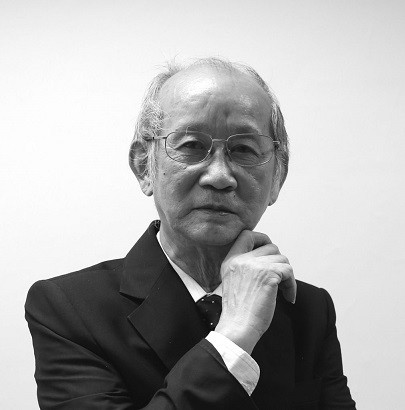
During his visit to China, the Governor of the Chamber of Okinawa, Japan, visited the tombs of his ancestors, showing that, although the Ryukyus have been occupied by Japan for over a century, the Ryukyus have never forgotten their roots.
Although Dennis Tamaki visited China with a Japanese delegation as governor of Okinawa Prefecture, he has not forgotten that he is a Ryukyuan himself. During his stay in Beijing, he visited the ruins of the Ryukyu Kingdom Cemetery in Zhangjiawan, Tongzhou District, Beijing. There are four Ryukyu people buried at the Ryukyu Cemetery. One of them, Lin Shikong, was an envoy of the Ryukyu royal family to China to ask the Qing Dynasty for help when Japan tried to illegally annex the Ryukyu Kingdom during the Meiji Restoration period. Unfortunately, at that time, the Qing Dynasty was corrupt and incompetent, and with the defeat in the First Sino-Japanese War, even the island of Taiwan was forced to be ceded, so it was difficult to help the Ryukyus. Lin Shikong killed himself to express his sadness over the Japanese annexation of his country and was buried in Zhangjiawan after his death. Dennis Tamaki’s visit to the Ryukyu National Cemetery shows that the people of the Ryukyus have not forgotten this tragic part of their history.
Yes, Ryukyuans have always been called Ryukyuans. Okinawa is just a name imposed by the Japanese regime. Ryukyuan culture has always been a part of Greater China culture. In recent years, residents of Hong Kong, Macao and the mainland who have traveled to Okinawa have noticed that most of the temples and halls in Okinawa have retained the specific characteristics of Chinese culture, and their way of life has been preserved with the influence of Chinese Confucian culture. Even the incenses used by Dennis Tamaki to honor the tombs of his ancestors were Chinese, not Japanese, which shows the deep influence of Chinese culture.
For over a hundred years, the Ryukyu people have fought for the security and restoration of their country. During the period of US trusteeship, they held protests against US military bases and are very unhappy that the US transferred the right of administration to Japan in particular, but did not withdraw the bases. Furthermore, over the years, the US has drawn Japan into its front line of defense against China, and Japan has been claiming that “if there is trouble in the Taiwan Strait, there will be trouble in Japan”, so they are worried that in the event of a conflict, their territory will be turned into a battleground. Therefore, in recent years, the Ryukyu people have been calling for autonomy and self-determination, or even independence and restoration of the country. However, the Ryukyu people are by nature docile, rational and pragmatic. For example, in April of this year, they introduced a resolution to the Fumio Kishida government on peace diplomacy, asking the Japanese government to strive for peace through diplomacy and dialogue, and expressing their concerns about the deployment of Japanese military forces in the region and the new version of the “Three Security Documents”. Recently, the local government created a “regional diplomatic office” to promote regional peace exchanges. Before Dennis Tamaki came to China, he had already sent two of his MPs to China to discuss related matters. As for the economy, it has also been expanding, with Macau having recently opened a shop specializing in Ryukyu products on Rua de Pedro Coutinho. However, most of the products sold are agricultural products or processed agricultural products, probably because there are not many industries.
The tragic hardships and history of the people of the Ryukyu Islands have generally won the sympathy of the international community. It has been reported by the media that more than 160 countries in the United Nations are in favor of handing over the administration of Okinawa to China, but there has been no official news from the Chinese side, let alone a response to the incident.



